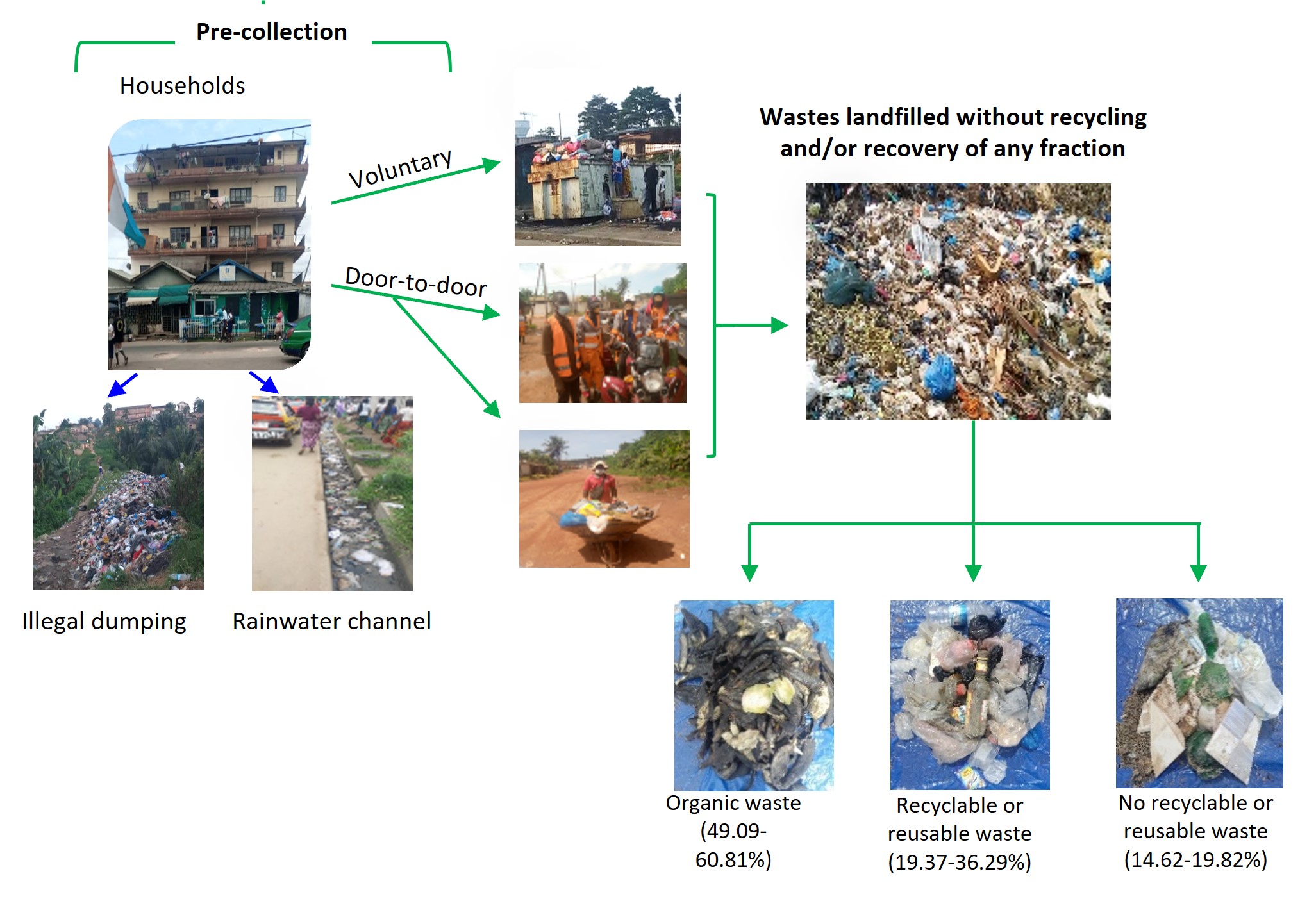
Delegating public solid waste management services to private structures is increasingly favored by some countries in sub-Saharan Africa. However, waste is still landfilled without recycling and/or recovery of any fraction. This study investigated the generation, characteristics and current management of solid household waste in the city of San Pedro, Côte d'Ivoire. Two surveys were carried out, one with one of the structures responsible for the pre-collection of solid waste and the other with household residents. In addition, samples of solid waste were taken in rubbish bins placed in households for this purpose, in order to assess their density and per capita production, and then separated into twelve categories in order to determine the net weight of each category of waste. The company's area of operation was divided into four collection routes, each with four pre-collection areas, managed by an operations manager, a works manager, three drivers and six waste collectors, with insufficient and unevenly distributed equipment. In high and medium standard housings (high standing habitat and medium standing habitat) waste is collected door-to-door in most households, while in low standard housings voluntary collection in bins is more common. In addition to formal operators, informal pre-collectors operated in most high standing habitat, given the irregularity of the services provided. Waste production was highest in the high standing habitat (0.73 kilogram/capita/day), followed by medium standing habitat (0.68 kilogram/capita/day) and low standing habitat (0.62 kilogram/capita/day). Waste density was highest in low standing habitat (246 kilogram/cubic meters), followed by medium standing habitat (170 kilogram/cubic meters) and high standing habitat (131 kilogram/capita/day).The waste consisted mainly of putrescible materials (49-55 percent), plastics (8-14 percent), cardboard (4-11 percent) and paper (3-6 percent). However, 55.17 percent of the waste was organic, 28.00 percent was recyclable or reusable and 16.83 percent was non-recyclable. The private structure in charge of solid household waste is struggling to provide or ensure adequate management. The characteristics of solid household waste offer good prospects for recovery and recycling. This manuscript could be useful for good management of solid household waste.
Total file downloads: 36